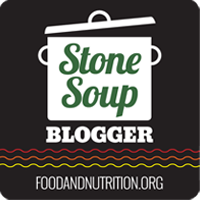Sage is here to help.
Feel like you could be eating better? Not sure what to change or where to look? Sage Nutritious Solutions make it easy for you to discover the wide, wonderful world of balanced, healthy, bangin' food.
The Healthy Way To Go Vegetarian/Vegan!
1. Calories! - For most people in America, getting enough calories is not a problem. The initial switch to vegetarianism, however, can lead to cutting out previous huge sources of calories and increasing the amount of fiber drastically in the diet, leading to a fuller feeling. Avoid that super skinny vegetarian stereotype and maintain a healthy weight! Make sure to include plenty of nuts/seeds, whole grains, fruits (dried/fresh/frozen) and legumes!
2. Eat unprocessed! - The best part about being vegetarian is that you increase your chances of consuming those wonderfully health plant-based foods. Plant foods have fiber, vitamins, minerals, antioxidants and phytonutrients (chemicals only found in plants). However, when foods are processed, some of these are lost - especially the fiber, antioxidants and potassium. Eat as close to whole form as you can and enjoy the benefits!
3. Iron! - Vegetarians/Vegans need about 2x as much iron as meat eaters because of the different types of iron found in vegetable foods vs. meat. If you're an athlete, you need even more! Focus on getting plenty of vegetables, beans, and nuts to get your iron - try to pair them with vitamin C rich foods to enhance absorption (like you need an excuse to add mango salsa to that black bean salad!) If you find that you're bruising easily, you definitely want to up your iron levels.
4. Iodine - if you're avoiding dairy and choosing sea salt over iodized salt, iodine might be a concern for you. One of the best sources of iodine is sea vegetables - if you're not eating sushi with seaweed a couple times a week, you may want to consider it, or the occasional supplement. We only need a bit of iodine but it's super important! Seaweed is a great source of plant-based nutrients as well as iodine so try to incorporate it if you can.
5. B12- There's so much vegetarian forum talk that concerns me about b12 - google b12 myth and you'll find sites arguing that veganism is the most natural human diet and that you don't need to supplement. Eeeek! Yes, b12 is made by bacteria but there are multiple forms of b12 that exist and only a couple have been shown to be usable by humans. Supplement b12 or eat b12 fortified foods - it's a must for vegans, and wouldn't harm but may help vegetarians.
6. Vitamin D - Vitamin D sales have shot up over the past decade - partly because of some new suggestive research and partly because of being overhyped. The Institute of Medicine has reviewed the research and can't seem to understand where the hype is coming from. It's recommended that you get 600 IU's a day of vitamin D - this can be obtained easily through a multivitamin, drinking fortified dairy/non-dairy milks, cereals fortified with vitamin D or with a small vitamin D supplement. During the summer months, you probably don't need much - however, during the winter, this is more of a concern. Vitamin D is vital and you don't want to miss out. The vegan form of Vitamin D appears to raise blood levels just as well as the nonvegan form so if you have an issue with vitamin D3, make sure you're getting a vitamin D2 supplement.
7. Omega 3's - there are 3 types of omega 3 fats and only one is found in plants. Mammals can technically convert the plant type into the kind found in animals (mostly in fish). The scientific community still debates whether we need the kind generally found in animals. For now, make sure you consume flax, chia and/or hemp regularly! If you're concerned about not getting the animal form, algae luckily contain this type as well - obviously, we don't eat a lot of algae but there are algae oil supplements that you can buy (they get a bit pricey). If you've had heart problems, have high cholesterol, diabetes, or really bad PMS, and are a strict vegetarian, you may want to consider a couple months worth of algae supplements and judge whether they help you or not!
Hope these tips help so you can live deliciously!

-Kevin Klatt, Nutritionist + Assistant Site Manager for:
